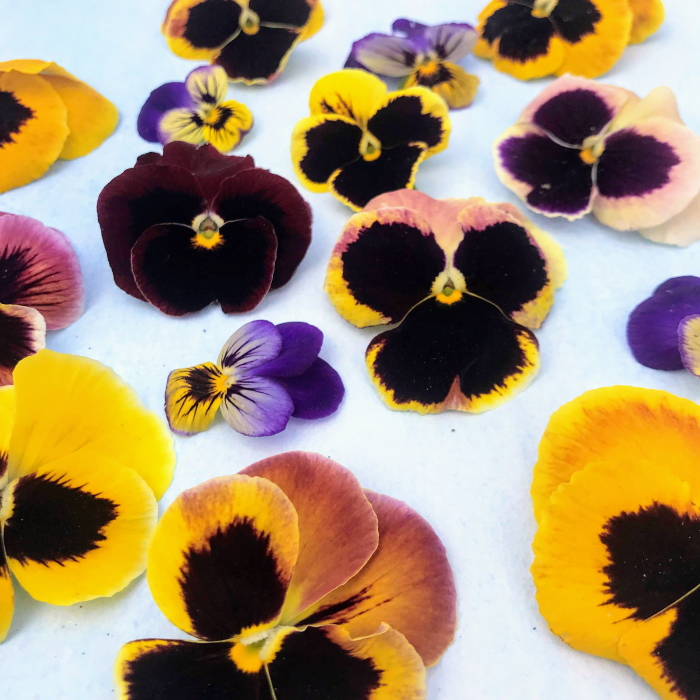My holiday advice: skip the “something in a box” growing kits and coffee mugs with cat memes this year, and get gifts for your favorite gardeners that they’ll use and enjoy. But if you’re short on ideas, here are some suggestions, from one gardener to another:
Planting in a Post-Wild World, by Claudia West and Thomas Rainer
 West spoke at a conference I attended a few years ago about creating “layers in landscapes.” In my flowerbeds, I was neglecting the understory — that crucial groundcover beneath varying heights of perennials that suppresses weeds and adds texture and depth. The book goes in-depth on creating plant communities in which each plant brings something different to the soil and the setting, with lists to get you started.
West spoke at a conference I attended a few years ago about creating “layers in landscapes.” In my flowerbeds, I was neglecting the understory — that crucial groundcover beneath varying heights of perennials that suppresses weeds and adds texture and depth. The book goes in-depth on creating plant communities in which each plant brings something different to the soil and the setting, with lists to get you started.
The authors’ message is one of hope for all of us who feel demoralized by the rapid spread of invasive species and the impact of climate change on the environment and wildlife. The book may be too technical for beginners, but for someone ready to get rid of a lawn and replace it with beautiful and useful plants this is both why and how-to in one package.
Manual of Woody Landscape Plants: Their Identification, Ornamental Characteristics, Culture, Propagation and Uses, by Michael Dirr
 Dirr, a well-known horticulturist, has published nine books that are better than any database you’ll find online to identify and learn about plants, trees and shrubs. This is the textbook version, not the glossy photo version, and it’s the most comprehensive and useful guide I’ve found.
Dirr, a well-known horticulturist, has published nine books that are better than any database you’ll find online to identify and learn about plants, trees and shrubs. This is the textbook version, not the glossy photo version, and it’s the most comprehensive and useful guide I’ve found.
The Overstory, by Richard Powers
Powers won the Pulitzer Prize for this novel with trees as central characters. It’s been widely reviewed and described in ways that are far more articulate and glowing than any copy I can write. Just read it. You’ll never look at a tree the same way again.
Gardening gloves by Foxglove
 While getting your hands in the dirt is a nice metaphor, gardening without gloves isn’t. I usually end up with cuts, scrapes, broken nails and itchy skin. Designed by Harriet Zbikowski of Beacon, Foxglove gloves are treasured by gardeners for their durability and comfort.
While getting your hands in the dirt is a nice metaphor, gardening without gloves isn’t. I usually end up with cuts, scrapes, broken nails and itchy skin. Designed by Harriet Zbikowski of Beacon, Foxglove gloves are treasured by gardeners for their durability and comfort.
I’m particularly excited about the gauntlet gloves for pruning and handling thorny bushes. Japanese barberry removal is an ongoing campaign in my landscape and these help me level the playing field. Retail stores in Cold Spring and Beacon carry the gloves, so you can shop local, too.
Weed wrench
Need to clear thickets of forsythia or buckthorn? Get ready to lose a weekend but gain a sore back. Enter the weed wrench, a standing tool that grabs the shrub by the trunk, and, when pulled back, will leverage it out of the ground with minimal soil disturbance. Check out the Uprooter online. It’s said to be made by someone who worked on the original weed wrench, which ceased production in 2013.
Pansy Mix seeds
Hudson Valley Seed Co., known for its original packaging artwork and dedication to preserving the diversity of plants through seeds, recently introduced a Pansy Mix. Founder Ken Greene published a personal and moving account of his experience as a queer person and the history and etymology of how “pansy” became a homophobic slur. In reclaiming both the word and the flower, Greene points out how hardy, beautiful and resilient pansies are in embodying the LGBTQIA community.
Artist Paul Harfleet, who designed the artwork for the new pack, started the Pansy Project, and he plants the flowers at sites of homophobic hate crimes. Proceeds are donated to the Trevor Project, a suicide prevention organization. In the past I’ve dismissed pansies as uninteresting annuals, but you’ll be seeing them in my yard from now on.
You can also always support organizations like these with donations in the name of your favorite gardener.
For the pollinator protector:
The Xerces Society for Invertebrate Conservation (xerces.org) has led and coordinated research, conservation and advocacy to protect pollinators and endangered species and sound the alarm on pesticides.
For gardeners who want to help birds:
I suggest Constitution Marsh Audubon Center and Sanctuary in Garrison (constitution.audubon.org) and/or the Cornell Lab of Ornithology (birds.cornell.edu). A study released this year found steep declines in nearly 30 percent of all bird species over the past half-century, including commonly seen birds like robins and sparrows.
For the wildflower curator:
Check out the Wild Seed Project (wildseedproject.org) for hand-collected seeds with detailed planting instructions, or purchase a gift certificate for your gardener to buy native plants next spring at a locally owned garden center.
